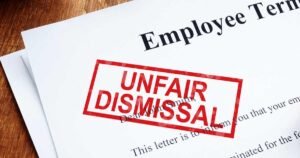If you’re considering hiring an Employment Litigation service in Canada to fight on your behalf, you should consider a few factors. Some law firms specialize in labor law, while others specialize in Employment Litigation. The cost of hiring an Employment Litigation service should also be considered. The more knowledgeable your lawyer is, the more effective your case is likely to be.
COVID-19
In recent years, COVID-19, a new piece of legislation that requires employers to amend the terms and conditions of employment of their workers, has become more prevalent in Canadian workplaces. This has resulted in temporary layoffs, employee Hiring, and other employment-related changes. These changes have also caused a number of employment-related claims to be brought against employers. These claims are currently going through the courts and arbitration processes.
Occupational diseases and illnesses are not the only issues facing the Canadian workplace, so it is vital to ensure that your employees receive the proper training and protection in the workplace. Employees with COVID-19 may require additional protective equipment (PPE) to perform their jobs safely. Your workplace must also comply with any federal and provincial regulations, as well as any guidelines on return to work.
Although there are few cases involving COVID-19-related employment lawsuits, several recent court decisions have upheld employee rights in such cases. For example, a federal court in California recently denied a motion to dismiss a claim regarding constructive discharge in violation of public policy. The court held that the plaintiffs failed to prove that the employer took adverse employment action against them, despite their allegations of harsh working conditions.
While compensation reductions may seem like a rare event, the COVID-19 pandemic has resulted in a number of workplaces being forced to cut compensation. In one such case, Kosteckyj v. Paramount Resources Ltd., an employee sued his employer after it instituted a company-wide salary reduction policy. In addition to a reduction in pay, he was also deprived of his RRSP contributions and bonuses.

Duty of Honest Performance
The Supreme Court of Canada recently issued a decision that expanded the Duty of Honest Performance in employment litigation service. This new duty applies to all contracts that require a party to act in good faith. This principle prevents a party from knowingly misleading a contracting party about matters that are directly related to the performance of the contract. In Callow Inc. v. Zollinger (2010) SCC 45, the court looked at a clause in a commercial winter maintenance agreement. The clause permitted a client to terminate the contract without cause but required ten days of written notice. The question was whether this clause was exercised in good faith.
Duty of Honest Performance is a new doctrine in Canadian common law. It will take several years to develop. In the meantime, reference to more mature bodies of law in civil law in Quebec will be helpful in understanding the principles underlying this doctrine. The Supreme Court’s decision in Callow has important implications for Canadian employers.
Unlike other duties in the law, the Duty of Honest Performance does not require the employer to have an intention to be dishonest. However, it requires that the employer act with “appropriate regard” to the counterparty’s legitimate contractual interests. A qualified employment litigation service in Canada will understand the applicable principles of duty of honesty and will be able to assist you with any employment litigation matters.
The duty of Honest Performance has become a crucial principle in employment litigation in Canada. In a recent decision, the Supreme Court of Canada expanded the Duty of Honest Performance to include actions that are neither honest nor fair. This decision clarified that Baycrest was required to act honorably, even though it could only terminate the Winter Contract with notice.

Cost of hiring an employment lawyer
Depending on the experience of the employment lawyer, the firm’s reputation, and the amount of work involved, the cost of hiring an employment lawyer in Canada can vary. Some employment lawyers are available on a contingency basis, which means that they will not charge their clients until they win their case or secure a settlement.
A good lawyer is able to provide a high-quality legal service for a reasonable price. For example, Barry Kuretzky is one of Canada’s top employment law experts. He brings a unique combination of legal knowledge and common sense to the table. His practice spans four decades, and he has assisted clients across the employment spectrum. During his career, he has built up extensive expertise in the area of labor relations, including grievances, collective bargaining, and union organizing drives. His experience also includes drafting employment contracts and workplace policies.
Hiring an employment lawyer is a big step in asserting your legal rights. The fees can vary widely, but you will likely benefit from an experienced lawyer with a proven track record. You should also consider your budget and the case size before hiring a lawyer. The most important thing is to find a lawyer who understands your needs, is responsive to your questions, and bills a reasonable fee.
It is never easy to hire great employees, and letting them go is even harder. With LegalShield, you can avoid constitutional violations and legal complications that can arise in the process. As a responsible employer, you owe it to your employees to comply with all government regulations. Hiring the right people is critical, but it also involves navigating the nuances of the employment law in Canada.
Pay equity act
A Pay equity act employment litigation service in Canada can help you pursue a pay equity case. Under the Fair Pay Act, employers must provide a fair pay plan to employees. Collective agreements cannot override the Act, so a plan must be in writing and publicly posted. A pay equity lawyer can advise you on the most effective way to proceed.
The Act requires federally regulated employers with 10 or more employees to take proactive measures to ensure equal pay. To do so, they must ensure that compensation practices are fair and equal for men and women performing equal work. The new act has also created a federal Pay Equity Commissioner, who was appointed to the Commission in October 2019.
The act is a great step in Canada’s fight for gender equality. It will prevent systemic discrimination by ensuring that men and women are paid equally for the same work. It will also reduce the gender wage gap and will lead to greater equity in the country. The Act covers salary, commissions, vacation pay, and all other forms of compensation that are directly awarded by the employer. As such, it applies to employers across the federal government and to parliamentary workplaces as well.
Pay equity legislation applies to both unionized and non-unionized workplaces. Employers are required to comply with the act’s requirements, including defining the value of a job, measuring pay gaps, and maintaining an equitable compensation structure. In addition, the Act also requires employers to inform employees about the process for achieving pay equity. They must also post a notice of changes in pay equity plans.
